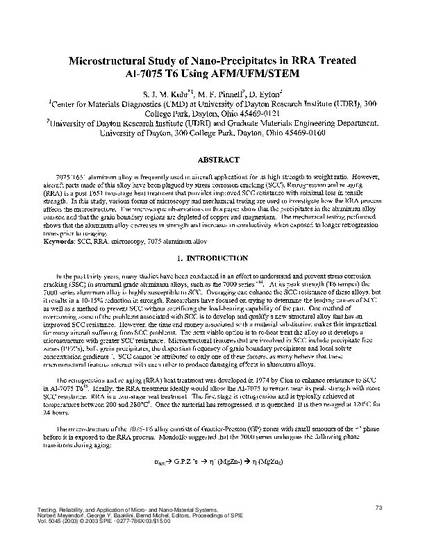
7075 T651 aluminum alloy is frequently used in aircraft applications for its high strength to weight ratio. However, aircraft parts made of this alloy have been plagued by stress corrosion cracking (SCC). Retrogression and re-aging (RRA) is a post T651 two-stage heat treatment that provides improved SCC resistance with minimal loss in tensile strength. In this study, various forms of microscopy and mechanical testing are used to investigate how the RRA process affects the microstructure.
The microscopic observations in this paper show that the precipitates in the aluminum alloy coarsen and that the grain boundary regions are depleted of copper and magnesium. The mechanical testing performed shows that the aluminum alloy decreases in strength and increases in conductivity when exposed to longer retrogression times prior to re-aging.
Available at: http://works.bepress.com/margaret_pinnell/14/

This document is provided for download in compliance with the publisher's policy on self-archiving. Permission documentation is on file.